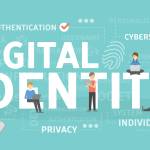United States
ID5 announced that it has acquired TrueData, a US-based identity graph company. The deal marks a significant expansion of ID5’s presence in the US, increasing its ability to provide identity services across the digital advertising ecosystem. The combined company will operate under the ID5 brand and will integrate TrueData’s identity graph with ID5’s Adaptive Identity technology to deliver a unified identity solution focused on privacy and interoperability.
Thailand
Government agencies, private companies and major platform providers including Google, LINE and TikTok have gathered to enhance Thailand’s digital identity verification system.
The meeting assigned the National Broadcasting and Telecommunications Commission (NBTC) to limit individuals to five SIM cards across all operators. New registration rules will require Dip Chip or other high-security identity verification systems to prevent “ghost SIMs,” which are often used by scam networks, especially along border areas where illegal SIM box operations persist.
The ministry also discussed a “restricted-use SIM” policy for individuals registered as mule-account holders, limiting their ability to use SIM cards and allowing registration only through the Interior Ministry’s Department of Provincial Administration database to ensure traceability.
Chaichanok said discussions with Google, LINE and TikTok focused on stricter user identity verification, including real-name checks and facial recognition technology combined with phone or email confirmation, to stop fake account creation. Platforms will also be required to verify the identity of all advertisers, both individuals and businesses.
Sweden / United States
Passkey and hardware authentication security key manufacturer Yubico has announced two new collaborations with HYPR and Nametag. As providers of Identity Verification (IDV), these partnerships will advance Yubico’s Bring Your Own IDV (BYOIDV) strategy, integrating verified identity into the secure provisioning, recovery and lifecycle management of YubiKeys integrating with YubiKey as a Service, said the firm.
Yubico’s secure enrollment ensures that every employee, contractor or partner is confirmed before a YubiKey or PIN is issued or used. These partnerships, initially with HYPR and Nametag, include the ability for customers to remotely verify the identity of employees before a YubiKey is issued or its PIN is activated. This helps enterprises guarantee every key is activated by the right person while significantly reducing IT friction. Where available globally, customers will be able to choose between HYPR Affirm or Nametag’s Deepfake Defense engine as their IDV provider.
United States
Apple has launched Digital ID, a new way for users to create an ID in Apple Wallet using information from their US passport. At launch, Digital ID acceptance will roll out first in beta at TSA checkpoints at more than 250 airports in the US for in-person identity verification during domestic travel, with additional digital ID acceptance use cases to follow.
Digital ID is not a replacement for a physical passport, and cannot be used for international travel and border crossing in lieu of a US passport.
United Kingdom
If you liked this content…
The United Kingdom Accreditation Service (UKAS) has granted accreditation to Kantara Initiative, making it the first UKAS-accredited conformity assessment body (CAB) certifying under the UK government’s Digital Identity and Attributes Trust Framework (DIATF).
Commenting on the accreditation decision, the Minister for Digital Government and Data, Ian Murray MP, said: “Thanks to Kantara’s accreditation, people can be reassured that digital IDs offered by private companies to help them prove their identity are safe, secure, and sustainable – in turn helping an industry which is already worth £2 billion.”
Germany
Germany has made its first moves to protect identity documents from quantum computer attacks, which threaten to break modern encryption and compromise sensitive data stored in IDs.
State-owned technology enterprise Bundesdruckerei Gruppe has completed a proof-of-concept for a national ID card that combines classical and post-quantum cryptography. The Berlin-based firm, which produces documents and devices for secure identification, collaborated on the project with security technology provider Giesecke+Devrient (G+D) and the German Federal Office for Information Security (BSI), G+D said in an announcement on Monday, reports Biometric Update.
The proof-of-concept involved chips produced by German semiconductor manufacturer Infineon, featuring a new design that supports Post-Quantum Cryptography (PQC) algorithms.
The PQC software was deployed into ID chips by G+D, which has previously worked in German government-funded projects related to quantum cryptography, such as Aquorypt and Quoryptan.
The move is part of an EU roadmap to adopt Post-Quantum Cryptography (PQC) in critical and high-risk applications by 2030. The roadmap was issued in June and warns that it is “impossible to precisely predict” when quantum computers will be powerful enough to compromise the cryptography currently in use.
United Kingdom
The UK has started testing a “contactless” border control system that allows British travellers to enter the country without showing their passports. The system relies on biometric e-gates, which match faces of British passport holders with government databases using facial recognition to confirm their identity.
The trial was held at Manchester Airport in October for three weeks. Phil Douglas, director-general of Border Force, said the technology had “considerably reduced” processing times.
The testing used existing e-gates, which normally require passengers to insert their passports into a reader before having their photo captured. If everything checks out, the gate opens automatically. Travelers who are not recognised or need additional questioning are directed to a Border Force officer.
More than 270 e-gates currently operate at British airports and ports and the UK government is planning to expand their use following trials, The Times reports.






